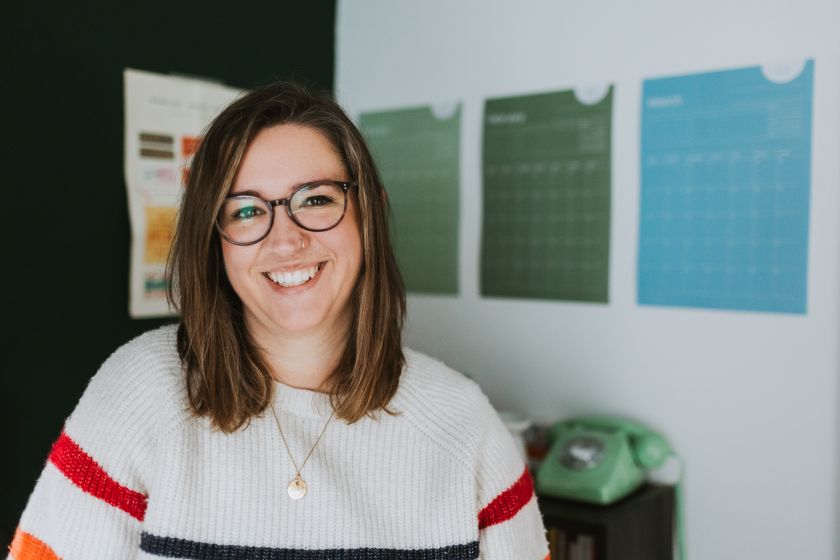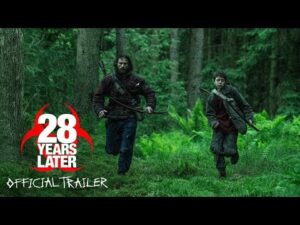‘100 Rejections, Zero Regrets’: Liz Mosley on her brave experiment, embracing the power of no


Liz Mosley
In an eye-opening session for members of The Studio, Liz Mosley revealed how actively seeking rejection transformed her creative practice and why “no” might be the most valuable word in a designer’s vocabulary.
In an age where creatives struggle with imposter syndrome and the paralysing fear of putting themselves out there, Creative Boom’s private network, The Studio, continues to provide sanctuary for honest conversations about the realities of creative work. It’s where vulnerability replaces performative success stories and where practical wisdom comes from those who’ve genuinely walked the path.
People like Liz Mosley, a seasoned graphic designer with over 16 years of experience who made an unusual decision: to actively seek 100 rejections in six months.
In her workshop session, Liz shared the profound lessons from this counter-intuitive experiment and why embracing rejection became the key to unlocking both personal resilience and professional opportunities.
The moment that changed everything
Liz brought a hard-earned perspective to The Studio’s community. As a specialist in creative branding and websites for small businesses and host of the Building Your Brand podcast, her career seemed successful from the outside. But beneath the surface lay a familiar creative struggle: the fear of rejection that keeps so many talented professionals playing small.
The catalyst came when Chris Do, a high-profile industry figure, declined to appear on her podcast because her audience wasn’t large enough. Rather than retreat into shame, Liz experienced a revelation that would reshape her entire approach to creative business.
As she explained to Studio members: “Once I acknowledged that maybe this mindset was holding me back, I asked, ‘How can I flip this around?'” This question sparked what she calls her “100 Rejections Challenge”. It was a deliberate pursuit of the very thing most creatives spend their careers trying to avoid.
Rejection as progress, not failure
The session’s central premise challenged everything most creatives believe about success. Liz reframed rejection from a sign of inadequacy to evidence of growth: “If I’m getting rejected, I’m on the right path—things are going as expected. I’m pushing myself.”
She tracked every pitch, follow-up, and response, initially in a spreadsheet, before making the process more playful with a sticker chart—turning potential shame into a game.
The psychological breakthrough was immediate: “The minute I decided to do the rejection challenge, my mindset shifted immediately. I turned it into a win-win situation for myself.” Studio members found this approach particularly powerful because it addressed the emotional barriers that often outweigh technical skills in creative careers.
The mathematics of creative courage
Liz shared insights that resonated deeply with attendees navigating pricing, pitching and self-promotion. Her perspective on pricing rejection was particularly enlightening: “If everyone is saying yes to your pricing, then it’s not high enough,” she said. “There should be a certain number of clients rejecting you.”
This reframe helped Studio members understand rejection as market feedback rather than personal judgment. As Liz explained through her own experience of being on the receiving end of pitches: “I realised the reasons I turn people down are rarely because they’re a terrible person. It’s usually about timing or fit.”
The session explored how this shift in perspective builds rejection resilience. That’s not so much the elimination of emotional response (no one expects you to be a psychopath) but the ability to recover faster. “It’s not like you’re fixed forever,” she stresses. “What changes is that you recover quicker because you have new stories to tell yourself.”
From rejection to unexpected opportunity
The most compelling aspect of Liz’s talk was how some rejections led to surprising victories. Her systematic approach to seeking “no” eventually resulted in landing her dream podcast sponsor and, ironically, being invited onto Chris Do’s podcast—the person whose rejection had initially sparked her journey.
This outcome perfectly illustrated her core message: “Failure is progress. If you go to the gym and want to build muscle, you have to do reps until you fail—that’s how you grow.” Studio members connected deeply with this analogy, recognising how creative growth requires the same systematic approach to discomfort.
Liz also emphasised the unexpected community-building power of sharing rejection stories. “I try to share about rejection as much as possible because people don’t talk about it enough,” she said. This transparency created connection rather than shame, challenging the polished narratives that dominate social media.
Learning from lived experience
Liz’s session exemplifies The Studio’s commitment to bringing authentic voices to its community. These aren’t theoretical frameworks delivered by consultants removed from creative realities. Instead, they’re honest reflections from practitioners who understand that creativity requires both skill and courage—and that the latter is often harder to develop.
The vulnerability Liz showed in sharing her journey created space for Studio members to examine their own relationship with risk, validation and ambition. Her willingness to quantify and systematise something as personal as rejection offered a practical bridge between emotional growth and professional development.
Ready to transform your relationship with rejection and unlock new creative possibilities? Join the thousands of creatives who’ve discovered that the conversations changing their careers are happening right now. The community that understands your challenges—and your potential—is waiting to welcome you.





